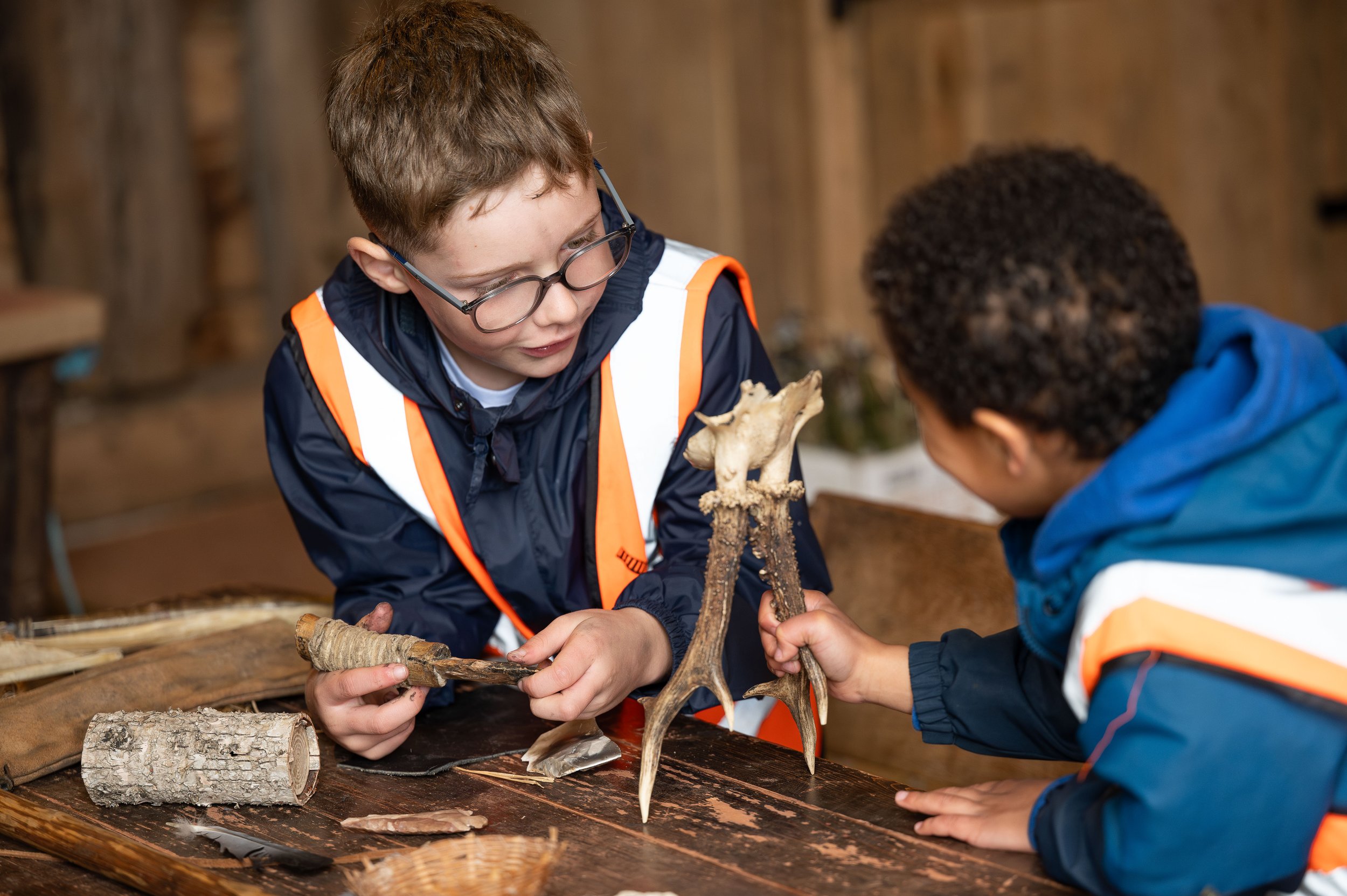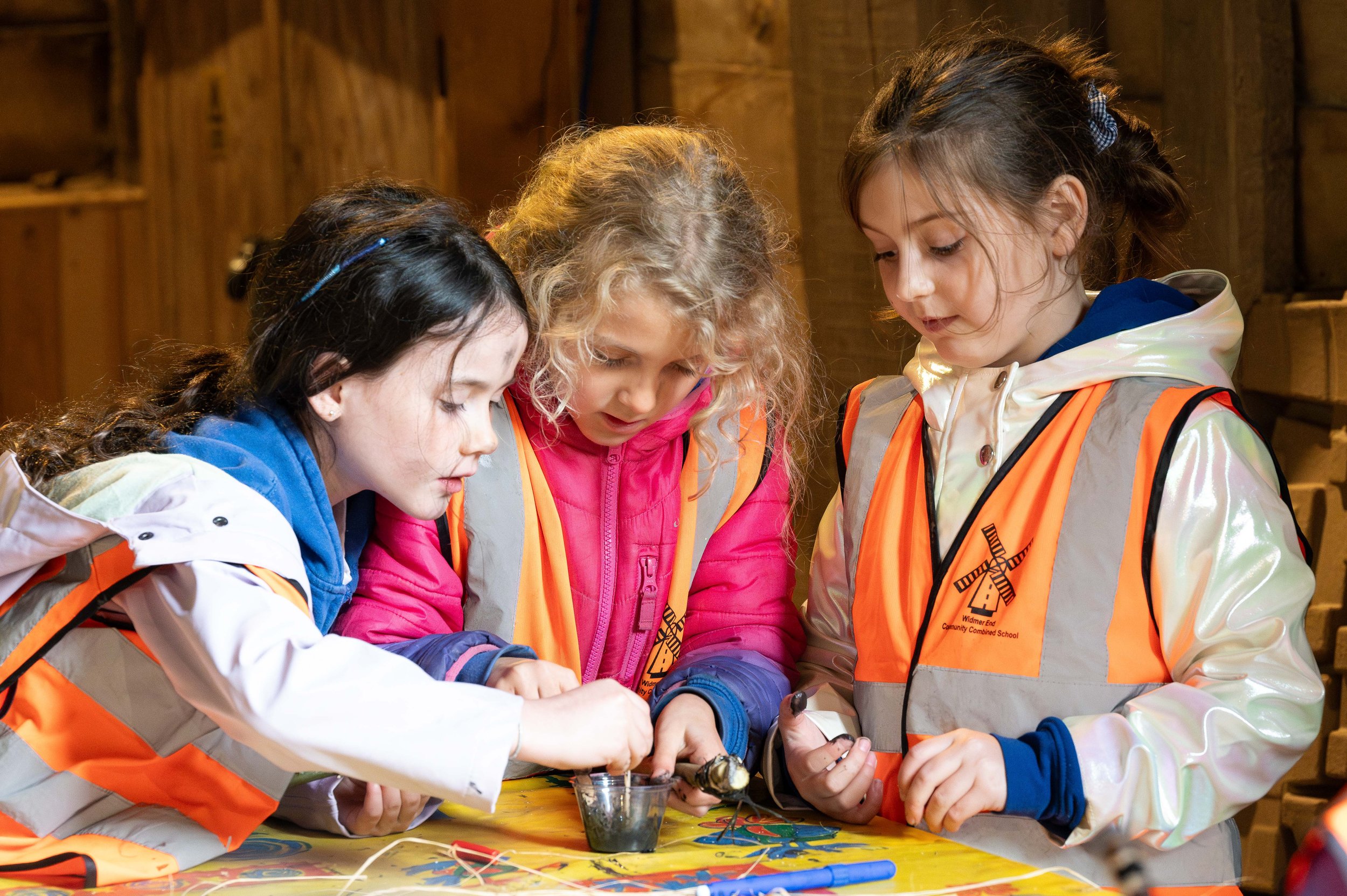
Learn About the Iron Age at COAM
At Chiltern Open Air Museum, we have a range of immersive school learning experiences.
This iron Age themed day includes two workshops where our educational leaders bring the theme to life with hand-on activities. The workshops take place in or around our historic buildings, giving students a unique and authentic experience.
Iron Age Day
Immerse your school in Iron Age life at Chiltern Open Air Museum. During two workshops - one introducing Iron Age life and another where students can have a go at an archaeological dig - your students will engage in hands-on activities such as crafting, ancient cooking techniques and explore our historically accurate roundhouse, learning how people lived, worked and thrived in this fascinating period. An exciting way to bring history to life for young learners that is suitable for both Key Stage 1 and Key Stage 2 students.
Workshops length: 2 hours
Cost per group of up to 32 students and 6 accompanying adults:
During academic year 2024 to 2025: £405
During academic year 2025 to 2026: £425
Available: February to November
Subject links: History, Science, Geography, Art, PE and D&T
KS1 Key curriculum links: Significant historical events, people and places in their own locality. Events beyond living memory that are significant nationally or globally.
KS2 Key curriculum links: Changes in Britain from the Stone Age to the Iron Age. Iron Age hill forts: tribal kingdoms, farming, art and culture.
Iron age workshop learning outcomes:
To understand how the Iron Age people used to live and compare to modern day life.
To experience different activities that were carried out by Iron Age people.
To explore a replica Iron Age house and use replica tools and equipment that would have been used during the Iron Age period.
To learn how to grind flour, make flatbreads, butter and clay pots, using traditional Iron Age methods.
Archaeological dig workshop - learning outcomes:
KS1
To understand what artefacts can tell us about ancient life.
To explore some basic excavation techniques.
To begin to understand how to interpret and analyse replica artefacts from different time periods.
KS2
To explore why archaeology is important to historical understanding.
To learn about archaeological techniques used on a site, e.g. aerial photography, LIDAR, geophysics, cataloguing, analysis, context and dating.
To analyse and handle replica artefacts from different time periods and place them on a chronological timeline.
To consider what the discovered items might reveal about the people who used them.






